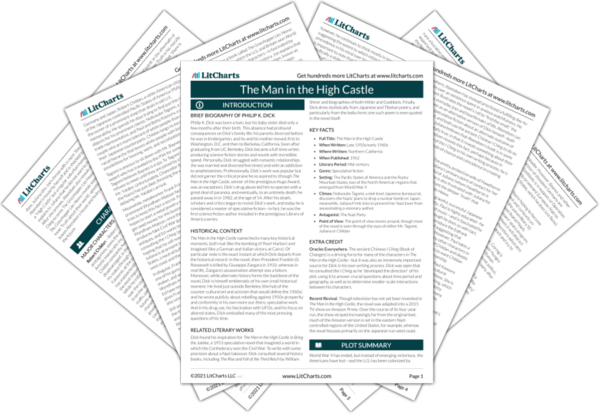Juliana’s comparison of Joe to a U.S. pioneer is revealing of two things. First, it suggests geographic conquest is a way of creating a historical legacy (a connection the Nazis, jetting off to Mars, certainly believe in). Second, it suggests that Joe’s support of the Nazis is somehow deeply American, or at least in line with American values. Also of note: the fact that Hitler is dying of syphilis is an example of the novel’s fascination with the contrast between the historical and the intimate. Hitler altered the world with his military and victory, but he also fell prey to his bodily desires and ailments.


